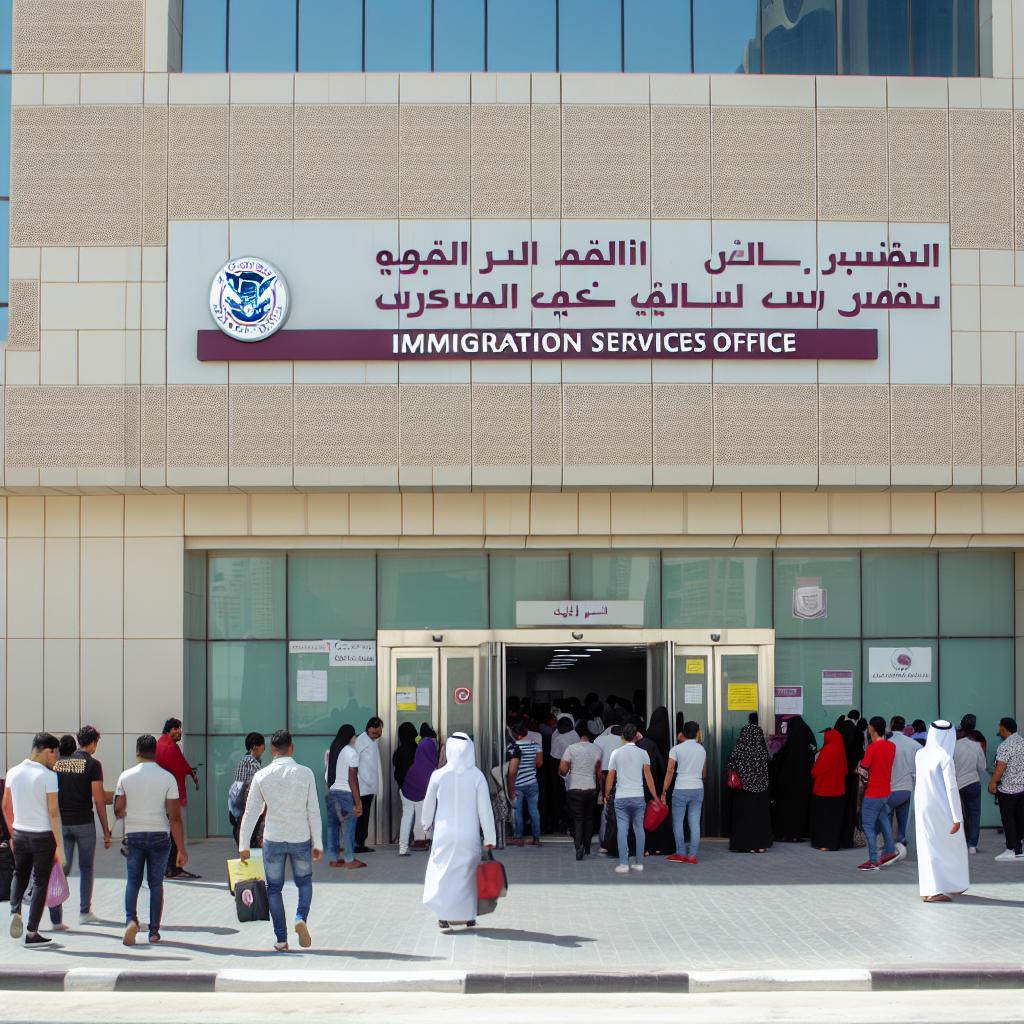Unlock the complexities of Temporary Protected Status (TPS) and grasp the essential criteria for...
USCIS To Open International Field Offices In Qatar And Turkey

Unlock the doors to enhanced immigration services as USCIS expands its global footprint in Qatar and Turkey.
Exploring the Strategic Importance of USCIS Expansion into Qatar and Turkey
The expansion of the United States Citizenship and Immigration Services (USCIS) into Qatar and Turkey marks a significant step in bolstering the agency's global presence. This strategic move is set to facilitate a more efficient and responsive immigration process for individuals in these regions. By establishing field offices in Doha and Ankara, USCIS is poised to enhance its operational capabilities and provide tailored services to meet the unique needs of local populations.
The choice of Qatar and Turkey for USCIS's expansion is particularly noteworthy given their geopolitical significance and the role they play in regional stability. As hubs of cultural and economic activity, these countries are strategic locations for USCIS to address the growing demands for its services, including refugee processing, visa applications, and international adoptions.
Enhancing Refugee Processing: A Closer Look at USCIS's New Initiatives
USCIS is deeply committed to improving the efficiency and effectiveness of refugee processing, and the new field offices in Qatar and Turkey are a testament to this resolve. These offices are expected to expedite the processing of refugee applications, thereby reducing wait times and improving the overall experience for applicants. The proximity to regions with large refugee populations allows USCIS to directly engage with those in need and deliver critical services more rapidly.
Furthermore, these initiatives not only pertain to the processing of applications but also extend to providing support and guidance to refugees during their resettlement process. By enhancing these services, USCIS is upholding its humanitarian commitments while also addressing national security concerns through thorough and careful vetting procedures.
Strengthening Strategic Partnerships and Interagency Cooperation
The establishment of new USCIS field offices is also instrumental in strengthening strategic partnerships and fostering interagency cooperation. By working closely with local governments, international organizations, and other U.S. agencies, USCIS can better synchronize its efforts and share best practices. These partnerships are crucial for addressing complex immigration challenges and ensuring a cohesive approach to policy implementation.
Collaborative efforts are particularly important in areas such as counter-terrorism, border security, and the management of migrant flows. The new offices will serve as a platform for USCIS to engage more effectively with its partners, thereby enhancing the integrity of the immigration system and protecting national interests.
Navigating the Benefits for Immigrants with New USCIS Field Offices
The new USCIS field offices in Qatar and Turkey offer a range of benefits for immigrants. These include improved access to information, reduced processing times, and the convenience of local support for a variety of immigration-related matters. Immigrants and their families can now receive guidance and assistance with applications, interviews, and biometric services without the need to travel long distances.
The presence of USCIS in these countries also means that immigrants will have a better understanding of U.S. immigration laws and policies, directly from the source. This can lead to more successful outcomes for those seeking to live, work, or study in the United States, as they can navigate the immigration process with greater clarity and confidence.
Understanding the Impact on Local Communities in Qatar and Turkey
The opening of USCIS field offices in Qatar and Turkey is expected to have a significant impact on local communities. These offices will bring economic benefits, such as the creation of jobs and the potential for increased cultural exchange. Additionally, they will serve as a resource for local residents who are interested in U.S. immigration, fostering a deeper understanding and connection between the United States and the host countries.
Moreover, the presence of USCIS can contribute to the strengthening of civil society by offering support and resources for integration and by promoting the values of diversity and inclusion. As USCIS embeds itself within the local context, it has the potential to positively influence local immigration practices and policies through the sharing of expertise and the promotion of humanitarian principles.
Ready to turn your visa dreams into reality? Explore our resources and services at www.visatoresidency.com today!
.png?width=200&height=50&name=Add%20a%20heading%20(1).png)